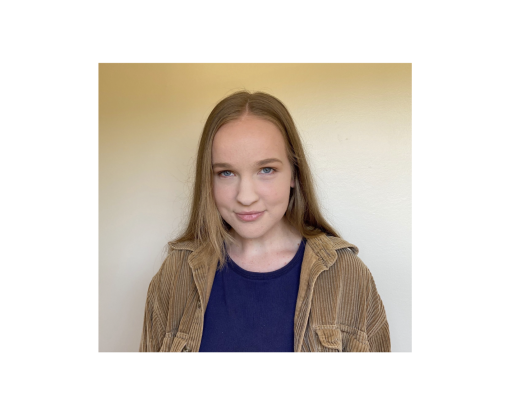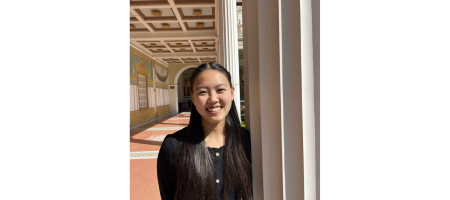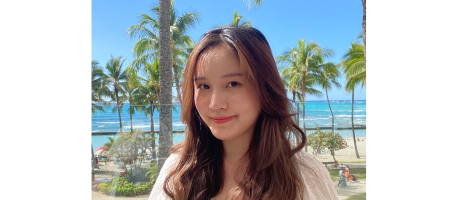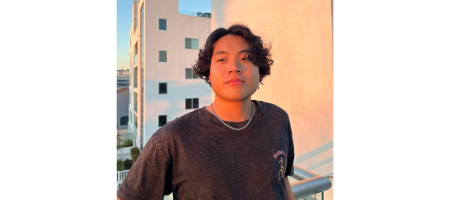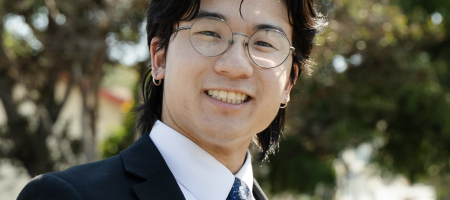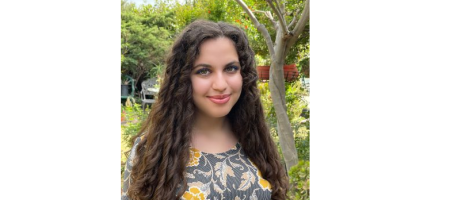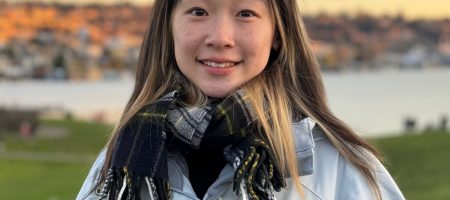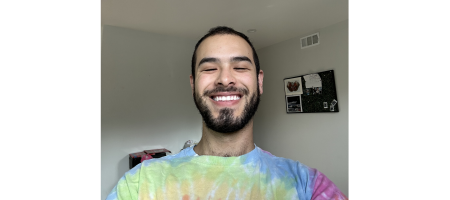Student Spotlight – Rachel Peterson
Meet UCLA undergraduate researcher Rachel Peterson!
Rachel Peterson is a Keck Fellow majoring in Sociology and enrolled in the UCLA Sociology Departmental Honors Program. The title of her project is “Faith and Fact: Evangelical Christian Networks and Belief Compatibility with Conspiracy Theories.” Her work explores the potential belief compatibility of Christian doctrine and conspiracies in conjunction with social networks. Rachel’s best piece of advice is to go for it because there is no better way to learn than just doing it!
How did you first get interested in your research project?
As a Sociology major, I am fascinated by reification. The idea is that if humans believe something is real, it is real in its consequences. This concept is especially relevant to conspiracy theories. In recent years, I became aware of increased theories surrounding American politics and the pandemic. While conspiracy theories range in extremity and may seem harmless, they have the power to motivate human action which can produce dire consequences. I began to be interested in researching the spread of conspiracies when finding out that people I knew ascribed to these theories as facts. They believe powerful conspiring agents hide the truth that only a select few uncover. Additionally, I saw religion being used to support conspiracy worldviews. As I became aware of conspiracies spreading among my own Christian acquaintances, I knew this was a topic I wanted to research. While not all conspiracies are directly religious in nature, some scholars have found a positive correlation between Christian religiosity and the endorsement of conspiracy theories. My research expands on existing scholarship by examining the potential belief compatibility of Christian doctrine and conspiracies in conjunction with social networks.
What has been the most exciting aspect of your research so far?
One of the most interesting aspects of my research has been conducting ethnographic fieldwork and interviews in an evangelical community. For three months I attended a small church where I documented interactions with church members and transcribed the sermons. This was a nerve-racking but rewarding experience. After my initial apprehension of being undercover for the sake of research, I found a way of being in a space that felt true to myself. Being immersed in the world I was researching provided me with essential insight into the social network of the church. The sermons and conversations also gave me the context to frame my future interview questions. The people I met at church seemed more open to interviews because of my fieldwork. While I used to think interviewing was straightforward, the process of facilitating a good interview is more work than it may seem. To collect relevant data the interviewer must prepare while also improvising when things don’t go to plan. Not only is preparation involved but one must be sure not to lead participants in any direction through expression, tone, or the questions asked. It has been an exciting process of honing my interview skills and seeing the results. I have found that even if I think I know where the interview is going, so often I’m surprised. Humans are complex beings. That’s part of the fun of studying the social world.
What has surprised you about your research or the research process?
I didn’t expect my own experience to be essential to my research. Throughout the research process, I have been very aware of my own connection to conspiracies and religion. My project was birthed out of seeing people I knew become consumed by conspiracy theories. Additionally, I grew up in a Christian household. When conducting my research I wanted to be aware of any biases and assumptions I had so that they would not interfere. Yet, as I was doing ethnographic fieldwork and interviews I realized I had an important insight into the mindsets of those I was studying. I can decipher what might seem incomprehensible to those outside of a religious context because that used to be my reality. Additionally, I have the framework to ask unassuming yet critical questions in my interviews. Rather than deluding myself into thinking I could be completely unbiased, I have come to understand that my lived experience is an asset to my research. Furthermore, I have been able to gain various perspectives on my data from my graduate student and faculty mentors. I am no longer afraid of researching a topic that connects to me.
What is one piece of advice you have for other UCLA students thinking about doing research?
I would advise students thinking of doing research to go for it. I was apprehensive to undertake a year-long independent research project because I didn’t think I had enough pew-requisite knowledge. Many students limit themselves because of self-doubt. One of the main purposes of undergraduate research is to equip students with the skills needed. There is no better way to learn than just doing it. You are not alone. I would also recommend asking many questions and being persistent in advocating for the help and resources you need.
What effect do you hope your research has in your field, at UCLA, in your community, or in the world?
I hope that my research can bring a more intricate understanding of a complex topic. While conspiracies are not new, with easy access to information via the internet, conspiracy movements have gained traction. These ideologies are not just relegated to ideas but influence action. This is evident in the indecent known as “Pizzagate” where a man broke into a pizzeria with an AR-15 because he thought kids were being imprisoned by a covert group of traffickers for satanic sacrifice. Explanations for events like these can not be reduced to one characteristic or affiliation. My work can add to scholarship surrounding the spread of conspiracies which can be useful for preventing misinformation. Though my research focuses on a specific community of people, much can be learned about ideologies propagated by Christian institutions that may be compatible with conspiracy beliefs. Sociologists have found that people are more likely to accept new beliefs if they are compatible with previously held worldviews and if they are shared by someone that person is closely connected to. My research is investigating how a close-knit religious network, with shared spiritual and often political views, could be conducive to conspiracy beliefs. I hope that my work adds to existing scholarship on conspiracy theories and be a launching point for further investigations.


